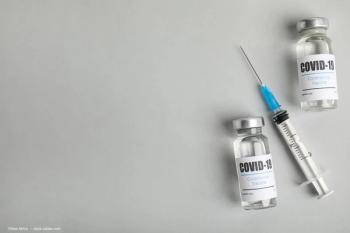
- Ophthalmology Times: August 2020
- Volume 45
- Issue 13
“It took a pandemic to get me to reprioritize my life”
An ophthalmologist details how the COVID-19 crisis has helped him focus on essentials
Getting a puppy, taking a walk with your spouse, learning to play the guitar—those all sound simple and normal enough.
And they are.
Ironically, finally choosing to engage in those activities, appreciate their combined simplicity and complexity, and integrate them into a lifestyle sometimes takes a catastrophe.
That’s how it was for John P. Berdahl, MD, who found the arrival of the
Related:
Slowing down
With less to do at work and the average practice backing down to about 10% of normal, there was time to get off the treadmill of demanding, even if enjoyable, tasks.
“It took a pandemic for me to walk daily with my wife,” he said. “The hour that we spend connecting with each other with no electronics is probably the single biggest grounding factor.”
The downtime allowed him to recognize his unidimensionality—his focus on ophthalmology: He was proficient in his work but in nothing else. “There is much more to being human than being oriented toward 1 thing,” Berdahl said.
Applying guiding principles
The laws that govern the world were not designed with a pandemic in mind, Berdahl pointed out, and many have gone by the boards.
As a result of the pandemic, he now adheres to 3 guiding principles.
1. Leaders eat last.
The captain goes down with the ship, he explained; the most vulnerable individuals, such as patients with progressive eye conditions and team members at risk of not being able to provide for their families, come first.
2. We are in an infinite game.
“Finite games are chess, checkers, and football that define a loser, and the rules of the games don’t change,” he said. “Life, however, is much more like a government, relationship, or business, in which the goal is not to win but to keep playing and doing so better with time. The decisions we are making now are intended to help us play the game better.”
3. Become antifragile.
The unpredictable cannot be predicted, such as if the coronavirus will spike again in the fall or winter. “All we can do is make ourselves as antifragile, resilient, and adaptable as possible, which provides a process from which to learn in the future,” he explained.
Related:
Identifying favorable outcomes
It took the pandemic to elevate Berdahl’s team above their individual comfort levels by giving team members opportunities, even if mistakes are made.
“This allows them to get better and prevents us from building upside-down pyramids on ourselves,” he said. “Constantly accepting tasks is not a sustainable growth-oriented model. We have to elevate and empower our leaders and team members to make decisions, for better or worse, based on their judgments.”
Berdahl also realized that working 20% less for 30% less pay was a good trade.
“We have a responsibility beyond our profession to our family, and we get 1 turn at life. Finding the right balance is the challenge,” Berdahl pointed out.
Related:
According to Berdahl, the world is ours, and we all are responsible for it. More than ever, people depend on each other and need to take care of each other.
Finally, he advised focusing on the essentials—time with family and the team, providing expertise to patients, and creating a viable business but not necessarily focusing on maximizing the bottom line.
--
John P. Berdahl, MD
e:[email protected]
Berdahl is in private practice in Sioux Falls, South Dakota. He has no financial interest in this subject matter.
Articles in this issue
over 5 years ago
Artificial tears offer a path to contact lens comfortover 5 years ago
Experts review state of AMD in 2020over 5 years ago
An ophthalmologist faces down COVID-19over 5 years ago
Performing follow-up perfects surgical techniqueover 5 years ago
Working with optometrists is winning strategyNewsletter
Don’t miss out—get Ophthalmology Times updates on the latest clinical advancements and expert interviews, straight to your inbox.





























